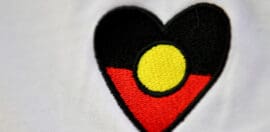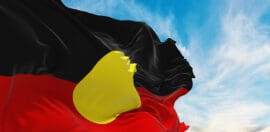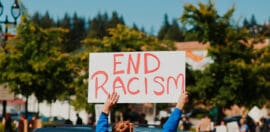The fight to tell Australia’s truth

22 July 2020 at 12:08 pm
The Victorian state government is setting up the country’s first formal truth telling process for Aboriginal Victorians. We take a look at why that’s so important.
Last week the Victorian government made the announcement many Indigenous advocates had been waiting decades to hear – a truth and justice process to formally recognise historic wrongs and address ongoing injustices for Aboriginal Victorians.
The historic process will be the first of its kind in Australia, and represents a significant step towards the creation of a treaty in the state.
It follows a unanimous decision by The First People’s Assembly – a democratically elected body for Aboriginal people – to set up the truth and justice process late last month.
The assembly will now be in charge of developing the terms of reference and deciding how the body will work in the coming months.
So what exactly is a truth telling process?
In countries such as New Zealand, South Africa and Canada, formal truth telling processes or commissions have uncovered and formally acknowledged past human-rights violations and ongoing injustices towards Indigenous communities.
The process in other countries has involved a royal commission-like process, inviting witnesses to give evidence about their personal experiences in a safe way, with support provided.
These processes have helped societies heal and recover from fractures and wounds, and advocates are hopeful it will do the same for Australia’s First Peoples.
Why is it an important part of the treaty?
Mutthi Mutthi and Wamba Wamba assembly member Jason Kelly, who moved the motion, told Pro Bono News that if a treaty was going to deliver justice for the ongoing effects of colonisation, telling the truth was a critical first step.
“We need to tell the truth about massacres, slavery, soldier service and settlements, policies of protection and assimilation, the stolen generations, over incarceration, and deaths in custody,” Kelly said.
“We can’t change history, we certainly can change the way it is viewed.”
He said that while Aboriginal Australians had a clear understanding around the impacts of colonisation, it was about showing non-Aboriginal Australians the correct side of history.
“I knew, from my family and my connection as a Mutthi Mutthi and Wamba Wamba person, what colonisation has meant for my family and all Aboriginal people across Australia but when I was taught about Australian history in school in the 1980’s the first thing we were taught was about the native problem for settlements,” he said.
“It’s the Australian history I imagine the prime minister got. It’s the Australian history that senior police officers and magistrates and people in those positions of power got.”
Professor Steve Larkin, chair of the Healing Foundation, told Pro Bono News that the missing understanding and acknowledgment of historic and ongoing wrongs was a source of ongoing trauma for Indigenous Australians.
“This source of ongoing trauma for many Aboriginal people then becomes a roadblock to what might be achieved through a reconciliation process,” Larkin said.
How long has the fight for truth telling gone on?
From Wiradjuri Elder Jimmy Clements showing up to the opening of Parliament House to demonstrate his sovereign rights to the Federal Territory in 1927, to the Uluru Statement from the Heart in 2017, Kelly said the fight by advocates and community groups for a truth telling process has been extensive.
A joint report from the Healing Foundation and Reconciliation Australia outlined a number of significant commissions that have been established and reports that have been released over the last 30 years, calling for truth telling and spelling out the need for Australia to develop a shared understanding of our history and its contemporary impacts.
These include the Royal Commission into Aboriginal Deaths in Custody, the Bringing Them Home report and the Council for Aboriginal Reconciliation’s final report. A truth telling process was also a key part of the 2017 Uluru Statement from the Heart.
Larkin said these smaller actions over the years had all contributed to bringing about the historical announcement that so many had waited so long for.
“Historical monuments, community commemorations and education are all part of truth telling, and these events can take place at an interpersonal, local, state, national or international level, and are multilayered,” he said.
“These processes inevitably provide awareness of the historic and ongoing impact of past actions, encouraging all sides to forge ahead together in an educated, reconciled and peaceful way.”
“It’s not about wanting to point blame, it’s about understanding each other better if we’re going to have a positive future together,” he said.
The road ahead
It’s not certain how long the process will take, but it is expected to be extensive.
Kelly said that while he knows there is still a long road ahead, it’s the first time he’s truly felt hope for the future of Aboriginal people.
“My ancestors and advocates who came before me all took action with the hope that things would be better, but this [formal truth telling process] gives me hope that when my time comes, when I go to my grave, something has shifted,” he said.







